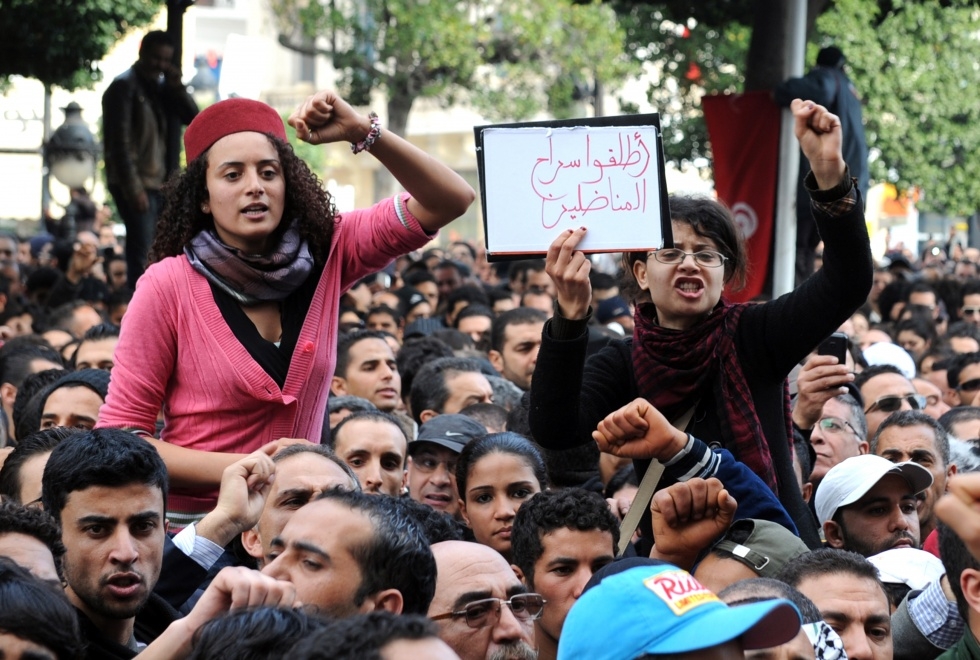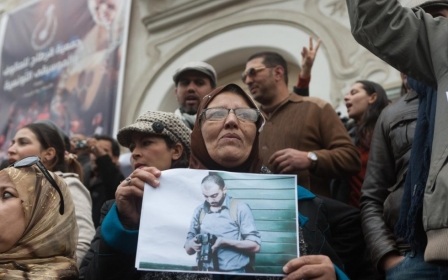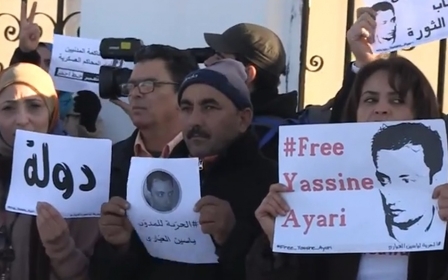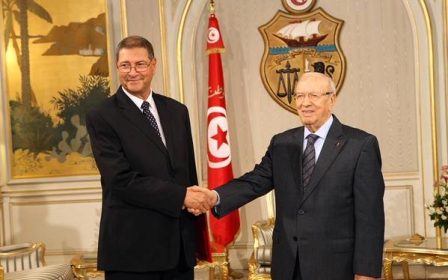Tunisia failed to provide justice in 2011 uprising deaths: HRW

Tunisia should reform its legal system after failing to hold individuals accountable for the killings of protesters during the country's 2011 uprising, Human Rights Watch said.
In a report published Monday, HRW reported that a lengthy process before military courts in the trials of 53 defendants in 2011 - including two former interior ministers and senior interior ministry officials - resulted in lenient sentences or acquittals.
The legal process was "blighted by legal and investigative problems and failed to deliver justice for the victims", HRW found, and included a failure to gather important evidence and to address command responsibility for security forces.
The defendants were accused of being involved in the use of excessive force by police in the deaths of Tunisian protesters between 17 December 2010 and 14 January 2011, the date former President Zine El-Abedine Ben Ali was removed from power and fled the country.
During that time, 132 protesters were killed and hundreds of others were injured, HRW said.
“While the Tunisian authorities are to be commended for seeking to ensure accountability for the deaths of protesters, the process was marred by serious flaws virtually from start to finish,” said Eric Goldstein, deputy Middle East and North Africa director. “As a result, four years after the uprising, many of the victims are still denied justice.”
HRW also urged Tunisia to "redouble efforts" to extradite Ben Ali, one of the main defendants in the trials, from Saudi Arabia, where he has sought refuge.
The Tunisian uprising began on 18 December 2010, sparked by vegetable vendor Mohamed Bouazizi's self-immolation, and inspired similar revolutions in countries across the Middle East and North Africa.
Middle East Eye propose une couverture et une analyse indépendantes et incomparables du Moyen-Orient, de l’Afrique du Nord et d’autres régions du monde. Pour en savoir plus sur la reprise de ce contenu et les frais qui s’appliquent, veuillez remplir ce formulaire [en anglais]. Pour en savoir plus sur MEE, cliquez ici [en anglais].




